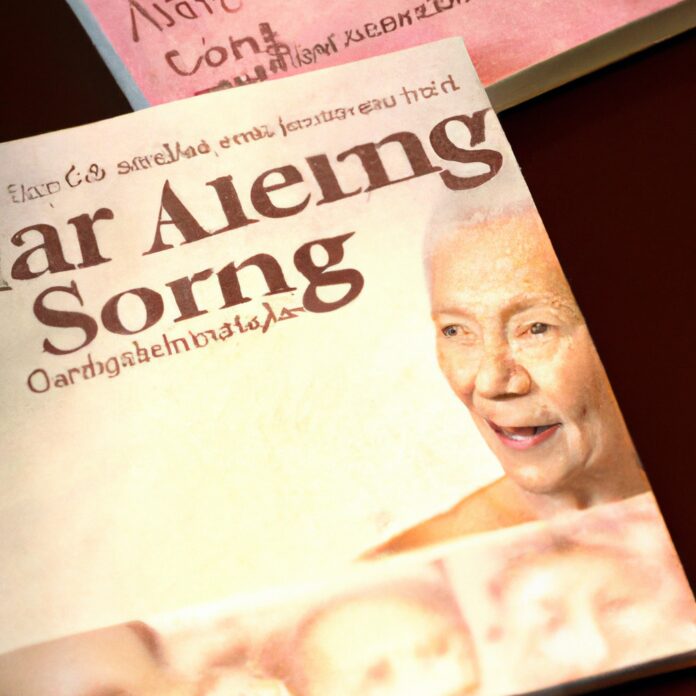As the aging process takes hold, taking care of your skin can become increasingly challenging. Sun damage, thinning skin, wrinkles, and discoloration all threaten to leave your complexion looking dull and blotchy. But, with careful and consistent skin care, it is possible to protect and nurture a healthy complexion even as you age. In this article, we explore the different ways that seniors can look after their skin and maintain a vibrant and youthful complexion.
1. Nurturing Healthy Complexions: An Aging Skin Care Primer
As you age, caring for your complexion becomes an increasingly important part of your daily routine. The harsh truth is that the natural aging process can cause wrinkles, dullness, sagging, and loss of elasticity in the skin. But there are ways to keep your skin healthy and youthful-looking for years to come.
A robust skin-care regimen is not one-size-fits-all, and everyone’s will vary slightly based on their needs and lifestyle. But there are some essential basics that everyone should be aware of:
- Moisturize: Moisturizers lock in hydration, keeping your skin well-nourished and supple. Look for a higher-grade moisturizer that is right for your skin type. Also, don’t forget to apply moisturizer after you shower.
- Exfoliate: Exfoliating can help to eliminate dead skin cells, resulting in a brighter and smoother complexion. Regular exfoliation also helps skincare products penetrate the skin more deeply.
- Protect: Sunscreen is a must, regardless of your age, since exposure to UV radiation over time can cause wrinkles, dark spots, and skin cancer. Use at least an SPF 30 daily.
Apart from following the above skincare basics, make sure to get enough sleep, drink plenty of water, and avoid smoking. Taking off your makeup before bed, using a humidifier during winter, and incorporating products like serums or retinoids into your regimen can also help to keep your complexion looking healthy.
2. Unlocking the Secrets of Skin’s Changing Needs
As we move through life, the needs of our skin change. Caring for our skin in the best way possible involves understanding these needs and addressing them over time. As our skin health ebbs and flows, these changing needs give us certain clues and it’s important to not only pay attention to what it’s telling us, but also to take action.
Here are some tips to help you unlock the secrets of skin’s changing needs:
- Hydration: During the warmer months, the skin loses more water, which needs to be replenished with hydrating lotions and moisturizers. In the winter, our skin needs thicker products with humectants to help keep moisture in.
- Protection: To protect from both UV exposure and pollution, sunscreen should be applied in the morning regardless of the weather. During very cold winter months, milder skincare products that are more suitable for the skin can be used in favour of stronger, more active products.
- Exfoliation: During the spring and summer, exfoliation needs to be performed slightly more often to keep the skin clean and activate cell turnover. During the winter months, exfoliation needs to be done a bit less so as not to overly dry the skin.
- Adaptation: It’s essential to be aware of our skin’s needs and adapt our skincare routines accordingly. If you’ve noticed a change in your skin, a tweak to your daily skincare routine may be necessary.
It’s through changes that our skin tells us what it needs the most and our job is to understand and listen. By setting up a routine tailored for our needs and actively paying attention to any changes, we can effectively unlock the secrets of skin’s changing needs.
3. Unveiling the Benefits of Consistent Skin Care
When it comes to consistently taking care of your skin, the opportunities for improved health and beauty are truly awe-inspiring. From reduced wrinkles to a more even complexion, here’s what you can gain from dedicating yourself to healthy skin habits.
- Enjoy a Youthful Glow
Consistent skin care leaves you with a youthful complexion that positively glows. From softening fine lines to brightening your complexion, proper skin care can easily turn back the clock in terms of your appearance.
- Remove Toxins
Moisturizing your skin with the right product, in the right way, keeps damaging toxins from overtaking your epidermis. Additionally, the hydration provided will further keep toxins rotting away from your skin’s face.
- Increase Confidence
The confidence associated with radiant skin cannot be overstated. Exquisite skin leads to a heightened self-image, and that in turn culminates in more excitement when engaging in social activities.
- Prevent Further Skin Damage
Your skin can only take so much assault from environmental and lifestyle conditions. Therefore, having a regular routine for caring and protecting your skin can save you from having more issues down the line.
Ultimately, keeping your skin fresh and clean is a wonderful way to showcase the beauty that nature gave you. With the added confidence and protection of regularly caring for your skin, it’ll be difficult not to show off your splendid face to the world.
4. Identifying the Right Ingredients for Revitalized Complexions
Our complexions need the right ingredients in order to be revitalized and rejuvenated. Choosing the right beauty regime could make all the difference in whether skin looks happy and healthy or dull and drab. Never fear, with the correct ingredients and some simple tips, a complexion that’s glowing with health is within your reach.
When it comes to choosing the right ingredients to revitalize a complexion, a few key elements should be kept in mind. These elements include:
- Sun Protection: Sun protection should always be a central tenet of any beauty routine, particularly when dealing with skin that needs revitalization. Without proper protection, skin can become more damaged over time.
- Antioxidants: Antioxidants help to protect the skin from free radicals while also fighting inflammation. This can be especially beneficial when dealing with skin that’s dull, dehydrated or grey-looking.
- Essential Oils: Essential oils such as jojoba, argan, and tea tree can help to tighten and moisturize skin, leaving it softer and more supple. In addition, these ingredients can also reduce inflammation and fight bacteria.
It’s important to find the right balance of ingredients for a successful revitalized complexion. Not every ingredient is right for every individual’s skin type. For example, those with acne-prone skin should opt for oils that are specifically formulated to be noncomedogenic, such as jojoba or almond oil.
In the end, the best way to find the right ingredients for a revitalized complexion is to focus on hydration and sun protection while choosing the right products in line with an individual’s skin type. With the right approach, a healthy and glowing complexion can be achieved in no time.
5. Developing a Skin Care Strategy that Suits Senior Skin
As we grow older, our skin naturally ages. To better protect the skin of seniors and keep it looking healthy, developing a reliable skin care strategy is key. Here are five simple steps to ensure that your senior loved one’s skin remains as healthy as possible:
- Limit Sun Exposure: Seniors should keep up the habit of using sunscreen, sunglasses and other protective gear when out in the sun. Prolonged exposure can harm skin, increasing the risk of skin cancer and premature wrinkles.
- Moisturise Regularly: Skin can become dry and flaky as we age, as the natural fatty acid and collagen layers get depleted. It’s important to use an all-natural, unscented moisturizer to rehydrate the skin and keep it looking and feeling healthy.
It’s also important to avoid skin scrubbing and other harsh treatments that can damage aging skin. Here are a few additional tips to keep in mind when developing a skin care plan for senior loved ones:
- Use a Gentle Cleanser: Look for a mild cleanser specifically designed for aging skin; it should be one that removes dirt and other impurities without stripping away natural oils.
- Nourish the Skin: Senior skin can benefit from natural oils such as coconut and almond. Nourishing, all-natural products such as face creams and exfoliators will help keep the skin looking soft and healthy.
- Protect Against Infections: Seniors need extra help to ward off skin infections. Make sure they use products with antimicrobial properties to reduce the risk of fungal and bacterial skin infections.
Following a skin care strategy tailored for aging skin is critical for keeping seniors’ skin looking and feeling healthy. With the right plan in place, seniors can enjoy softer, smoother skin without worrying about wrinkles or dryness.
As we enter our golden years, it’s vital to focus on nurturing our skin. While aging skin may be problematic, armed with the right knowledge and products, we can take care of our complexions and maintain healthy skin for years to come.





